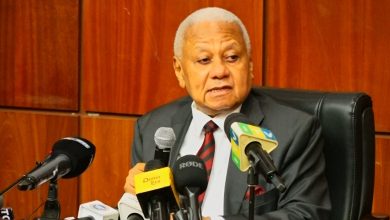Unity, dialogue key to post-election stability – Experts

DAR ES SALAAM: ANALYSTS and academicians have stressed the importance of national unity, peace and inclusive dialogue as a foundation for Tanzania’s socio-economic and political development after the General Election.
In interviews, experts stressed that maintaining peace and mutual understanding is crucial to safeguarding the country’s achievements since independence, implementing the National Development Vision 2050 and improving the wellbeing of all citizens.
Tanzania has long been recognised globally as a peaceful nation, known for the hospitality and unity of its people.
To maintain this legacy, experts recommended policy and legal reforms that ensure demographic representation of all age groups, including youth, women and political parties, to foster lasting understanding.
Public Administration and Governance expert at the Institute of Accountancy Arusha (IAA), Dr Adam Mnyavanu said the country’s development aspirations, including Vision 2050, require collective efforts to promote peace and stability, while advancing economic activities post-election.
“First and foremost, we have the country to build, which is Tanzania. Political differences should never destroy our nation. This is the country we have, and it has no substitute,” Dr Mnyavanu told Daily News over the weekend.
He urged citizens to address challenges collectively and avoid relying on outsiders for solutions.
“After the General Election, we must evaluate our shortcomings during the polls and identify the way forward,” he said, noting that peace is vital for smooth delivery of social services such as healthcare and education.
Dr Mnyavanu also stressed the importance of focusing on the farming season, encouraging citizens to engage in economic activities peacefully and avoid violent protests that could damage public infrastructure, private businesses and investments.
ALSO READ: Mwinyi to address Zanzibar House of Representatives today
He warned that post-election violence has destabilised many countries in Africa and urged Tanzania to avoid the same pitfalls.
“It is crucial to avoid trying to address political grievances by creating another problem through among violent protest, which in most cases result in destruction of public infrastructures, private businesses and investments,” he warned.
He further recommended that reconciliation and dialogue should go beyond religious leaders and political parties to include equitable representation of youth and other demographic groups. Such efforts, he said, should link political reconciliation to economic and development strategies for all citizens.
He said the reconciliation should transcend addressing political matters to strategising economic and political policies which will create opportunities for development all people.
This year, Tanzania conducted its 7th General Election under the multi-party system introduced in 1995.
Director of Research, Innovation, and Communication Engagement at Saint Augustine University of Tanzania (SAUT), Dr Delphine Kessy stressed the urgency for citizens to listen to one another and reach socio-political consensus to ensure lasting peace.
Dr Kessy who doubles as the tourism expert encouraged all citizens to cherish peace and tranquillity in order to secure the country’s booming tourism industry from reversing.
“Listening to one another is essential to address discontent and build understanding,” Dr Kessy said.
She also insisted the importance of maintaining peace to protect the country’s tourism industry, which President Samia Suluhu Hassan has been actively promoting through initiatives such as the Royal Tour Film.
“We have a target of 8 million annual tourists by 2030, which can only be achieved under a peaceful atmosphere,” she said, warning that political instability could tarnish Tanzania’s image and discourage investment.
At her capacity as the tourism expert and Member of the World Tourism Network, Dr Kessy said she was depressed with the post-election political violence, which happened during the October 29th General Election in the country, urging all citizens and the government to uphold peace.
Director of Africa Peace and Development Network (MAMA) and Senior Research Fellow Dr George Mutalemwa noted Tanzania’s longstanding reputation as one of the most peaceful countries in the world, thanking the wisdom of its leaders for preserving this identity.
“This is the identity we wish to preserve for the promotion of peace, national unity and development,” Dr Mutalemwa said.
Meanwhile, a youth leader and former Speaker of Mzumbe University Student Representative Council, Ms Christina Mikindo said that citizens are critical to national unity, peace, and development.
“When people respect differences and work together, diversity becomes a strength that fosters national unity. By choosing dialogue over conflict and promoting tolerance, they create an environment where education, business, and innovation can thrive,” she said.
Ms Mikindo added that patriotism is demonstrated through responsibility, loyalty, and service, protecting public resources, respecting laws and supporting local industries.
She urged citizens to actively participate in civic duties, value education, and drive progress through creativity and accountability to ensure a stronger, more resilient and prosperous nation for future generations.
In the last week election, the ruling CCM emerged victorious, with Dr Samia Suluhu Hassan securing approximately 97.66 per cent of the votes cast.





